The future of hotel room service is in flux. On the one hand, the rise of third-party food delivery apps has made it easier than ever for guests to order food from their rooms without having to go through the hotel. While convenient for guests, this practice has put a financial strain on many hotels who are unable to compete with the lower prices and wider selection.
On the other hand, there is still a demand for hotel room service from guests seeking the convenience and privacy of having food delivered straight to their rooms. This is especially true for business travelers who are working late or for guests who are staying in hotels that do not have restaurants on-site.
In this article, we explore how current trends are reshaping the future of this once sought-after amenity.
Room Service Personalization
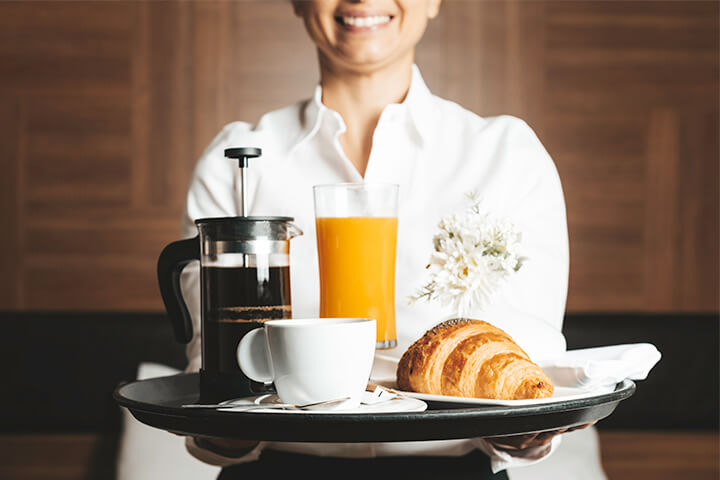
More and more, hotel guests are seeking personalized experiences, and room service is no exception. In the age of food intolerances, ingredient substitutions, increased health awareness, increased allergy awareness, and the ever-expanding popularity of alternative diets, naturally our guests have come to expect choices.
For instance, a guest who frequently orders vegetarian meals and enjoys morning workouts might receive a customized menu featuring plant-based breakfast options and post-workout snacks. This personalized touch not only enhances their stay, but also fosters a sense of loyalty and connection with the hotel brand.
Technology
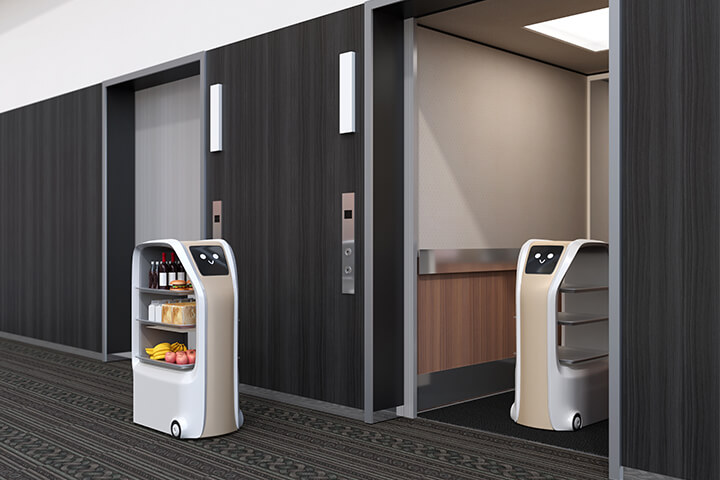
Technology will play a major role in the future of hotel room service. Chatbots, mobile ordering, and self-service kiosks have started popping up around the world, to improve the efficiency and convenience of room service.
Leveraging advanced technologies such as AI and data analytics, hotels will be able to anticipate guest preferences based on their past stays, dietary restrictions, and even real-time data like fitness tracker metrics. This data can then be used to create personalized room service menus that are tailored to each guest’s individual needs. To capitalize on the need for customization, some hotels are leaning on mobile apps that allow guests to customize their room service orders, browse menus, and track their deliveries in real-time.
As room service evolves, expect to see robots delivering orders, to free up staff so that they can focus on other tasks or to simply save money. While not a common practice, a number of hotels already employee our wired friends. Service will be further automated by AI chatbots who answer guests’ questions about room service menus, take orders, and track deliveries.
Sustainability
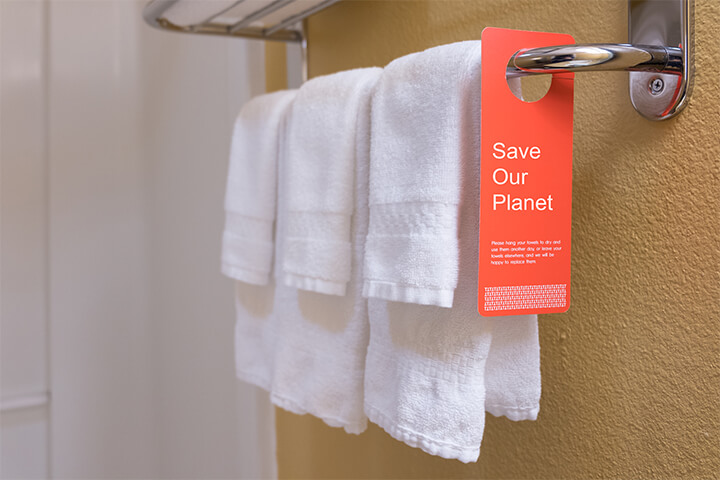
The sustainability movement is also reshaping the landscape of hotel room service. Increasingly, consumers are seeking eco-friendly options, and hotels that, for instance, source local ingredients, and minimize single-use plastics in their dining offerings. Simply put, if your guests feel your services align with their values, they’ll spend more money.
With growing environmental consciousness, hotels should consider prioritizing sustainable practices in their room service operations. This will include eco-friendly packaging and utensils, locally sourced ingredients, and reduced food waste. Perhaps in the future, guests may be able to even find detailed information about the sourcing of ingredients, the carbon footprint of their meal, and options to minimize waste through portion control.
Partnerships
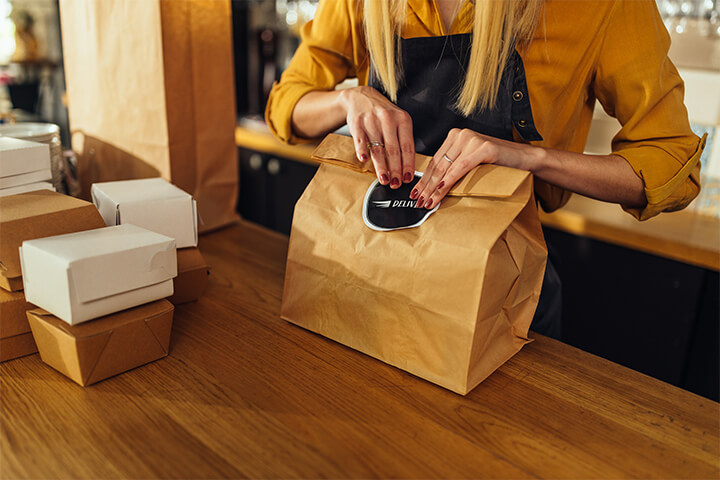
More and more, guests want to learn about the locals when they travel, which chiefly includes exploring authentic cuisine. To capitalize on this trend, hotels can partner with local restaurants to offer room service menus that feature locally sourced ingredients and regional dishes. This can help to improve the quality and freshness of room service offerings, while also supporting the local economy.
One way to offer a more authentic menu to your guests is to partner with third-party food delivery apps. For hotels, this partnership is a chance to offer their guests a wider selection of options and to compete on price without having to invest in their own kitchen and staff.
Some third-party food delivery apps offer loyalty programs that can benefit hotels. For example, some apps offer points or rewards that can be redeemed for discounts on food or other hotel amenities. A system that includes points and prizes always draws in more encouragement from guests, increasing the probability that they’ll spend more and order more often.
Future-Proofing Room Service
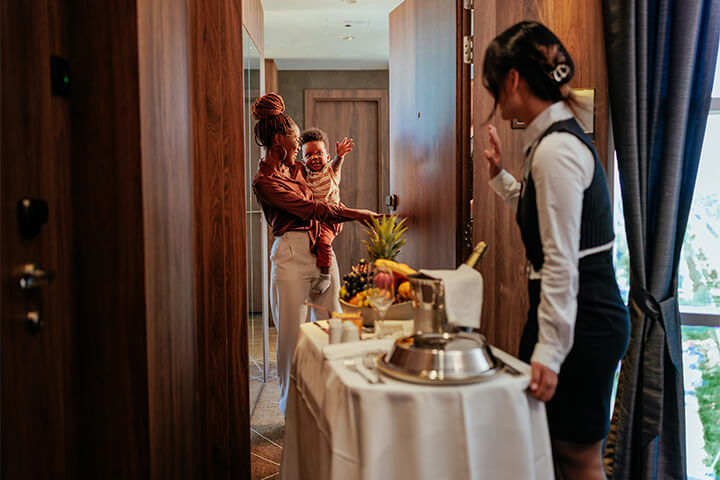
For room service to remain relevant to travelers, hotels need to adapt to the changing needs of guests. The future of hotel room service embodies a convergence of technological innovation, personalization, and sustainability. By embracing digital solutions for streamlined ordering, personalizing guest experiences, prioritizing sustainability, and integrating local delivery partnerships, hotels can not only meet evolving guest expectations but also operate more efficiently.



